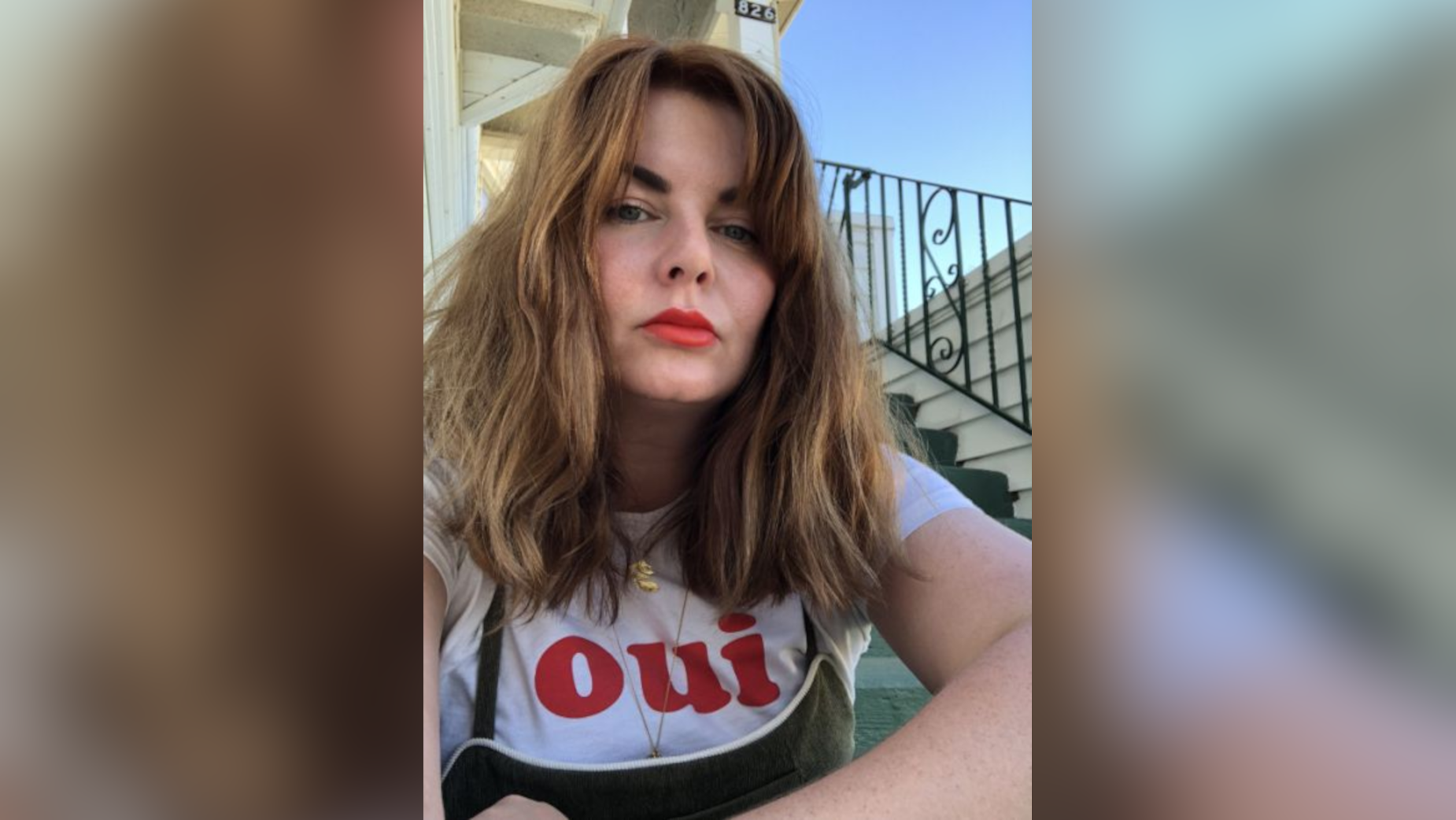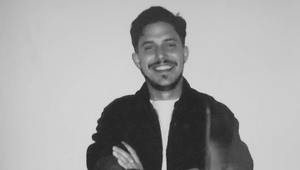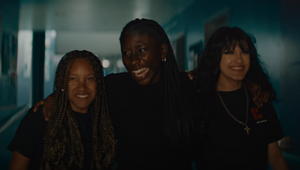
Bossing it: When it's Hard Is When it Matters with Michelle Craig

Michelle Craig is an award-winning director, writer, creative director and Founder of 2019 AdAge Production Company of the Year UNIT9, one of the leading multidisciplinary studios working across Films, Experiential, Digital and Innovation. Her directorial work has been described as real, fun, and emotionally truthful, spanning across TVCs, branded content, short films as well as features. Her latest short, Try A Little Tenderness, has been chosen for the Official Selection at the Oscar/BAFTA qualifying LA Shorts Fest and picked up numerous awards along the way.
Michelle’s immersive theatre background, her deep understanding of technology, matched with her empathy (she’s a space nerd) has led her to direct immersive campaigns for clients including Samsung, Netflix, Spotify, Lionsgate, Amazon, amongst others. It is here that her passion for storytelling intersects perfectly with the world of experience, leading to successful activations that redefine the way brands engage with audiences.
Her favourite Muppet is Animal. She thinks he should be everyone’s favourite Muppet.
LBB> What was your first experience of leadership?
Michelle> Ask any childhood friend or cousin who was forced to perform various dance routines and plays that absolutely and categorically none of them wanted to do!
Truthfully, I don’t know if I remember my first experience (outside those routines, of course!). I remember that there always seemed to be ‘a space’ for leadership in group activities, training, or workshops and that I often volunteered to step into that space. Not because I thought I would be best at it, but probably because I had nothing else to offer! I wasn’t going to solve that math problem or hold a map the right way in a team-building exercise. But I felt like I saw the people who could do those things, and I could cheerlead them and encourage a team to deliver something great, even when there was resistance. I’m passionate about people - about what makes them tick and how to create an environment where they can flourish.
I always wanted to create something - I didn’t always know what that was - but I did seem to understand people. And as a leader, the thing I find myself trying to create most now for the team is space. Space to be the best version of themselves.
LBB> How did you figure out what kind of leader you wanted to be – or what kind of leader you didn’t want to be?
Michelle> Such a great question! The truth is, it revealed itself to me. I knew that kindness mattered, I knew that being collaborative and pulling people up with you mattered, and I knew those were things I truly wanted to embody as a leader but had never really experienced. It mostly came down to wanting to treat others in a way I wish I had been treated in roles before I joined UNIT9.
LBB> What experience or moment gave you your biggest lesson in leadership?
Michelle> When it’s hard is when it matters. Is there any greater lesson than failure? I failed. BIG TIME. I let my ego get the best of me. And when you’re leading, there isn’t anywhere else to go but inward. A company I had worked really hard to build was not going to survive. I had staff, I had clients, and no way to keep going. I created a thousand stories and wrote a million draft emails trying to find a narrative that protected ‘me.’ I couldn’t send any of those. The experience taught me about accountability and being transparent. It was awful, but I took my lumps and managed to save relationships and create understanding. I wanted to hide, but I needed to lead.
LBB> Did you know you always wanted to take on a leadership role? If so how did you work towards it and if not, when did you start realising that you had it in you?
Michelle> Truthfully, I was never very good at rolling with someone else’s plan! I was an Air Force kid, meaning I went to 17 schools and didn’t have much agency and control over life, so it makes sense to me I wanted to be the one charting the course as an adult!
There was also a little luck involved. I met UNIT9! I was incredibly lucky to find a partnership with them. It only took six months of pestering them to finally meet me! Piero (Frescobaldi, founder of UNIT9) didn’t just give me autonomy and belief - he gave me mentorship. He guided me, pushed me, and encouraged me endlessly. His leadership is what I model my leadership on. About eight years ago, I said, ‘I think we should set up in LA - let’s open a studio there!’ He was right there saying, ‘Let’s go!’ I felt like I could rally a team there - lead. He trusted me, and here we are!
LBB> When it comes to 'leadership'; as a skill, how much do you think is a natural part of personality, how much can be taught and learned?
Michelle> Even when there’s a natural aptitude, becoming a true leader is all about learning and evolving. I fully believe successful leadership can be taught in the same way that people who naturally assume those roles aren’t always the best at them.
LBB> What are the aspects of leadership that you find most personally challenging? And how do you work through them?
Michelle> I’m a people pleaser! So, having boundaries in leadership where the focus can be on the product, business, or outcome rather than how people might feel about you has been - and still is - one of the things I have to work most on.
LBB> Have you ever felt like you've failed whilst in charge? How did you address the issue and what did you learn from it?
Michelle> I mean… all the time?! But I don’t think failure is a wholly negative thing. We’re all human; we’re going to fail at things. For me, being able to take a practical look at my part and what I can take from it has been great. I don’t shy away from owning my part
and bringing others into the solution.
LBB> In terms of leadership and openness, what’s your approach there? Do you think it’s important to be transparent as possible in the service of being authentic? Or is there a value in being careful and considered?
Michelle > I wish I was more considered! Many things that have worked for me have come from a sort of naivety - if I’d had any idea how hard it was, I’d never have even started! I try to keep a beginner’s mind and encourage others as well. Authenticity, even when it feels hard, is also incredibly important. As a people pleaser, this can sometimes be a challenge - but being inauthentic as a leader just isn’t an option.
LBB> As you developed your leadership skills did you have a mentor, if so who were/are they and what have you learned? And on the flip side, do you mentor any aspiring leaders and how do you approach that relationship?
Michelle> I feel so lucky that I got into business with Piero. He has been, and continues to be, an incredible mentor. I try to approach our relationship with honesty - in the early days, I wanted to impress and make it seem like nothing was ever wrong. He gently told me one day, “I made mistakes; now I can help you not make them” - it was revolutionary!
LBB> It's been a really challenging year - and that's an understatement. How do you cope with the responsibility of leading a team through such difficult waters?
Michelle> SO CHALLENGING. Holy smokes, it’s been tough. There’s a time to innovate and take risks, and there’s a time to exploit and exercise the things your business is really good at, and I’ve been focused on that second sentiment this year. Control what we can, release what we can’t - and it seems like it’s paying off.
LBB> This year has seen the industry confronted with its lack of action/progress on diversity and inclusion. As a leader how have you dealt with this?
Michelle> I wish it were just ‘this year.’ I always want to create opportunities for people; the whole team is aware of it and lives it with me. We can always do more. I want to, I will. UNIT9 has always been a diverse company. We’ve always used technology to create teams globally.
We’ve managed to build an INCREDIBLE team of female and diverse leaders here in North America. We started from scratch and had the chance to really think about who we wanted to lead the organization and help shape the industry - the talent, work ethic, and fierce attitude they bring. I feel immensely proud of UNIT9 for that.
LBB> How important is your company culture to the success of your business? And how have you managed to keep it alive with staff working remotely in 2020?
Michelle> Long before covid hit, UNIT9 exercised a remote working policy where teams could still work closely and effectively across different parts of the world. Far from dampening company culture, this approach has bolstered it - contributing to a more open,
collaborative, and culturally diverse team of exceptional people who share a passion for creating boundary-busting work!
LBB> What are the most useful resources you’ve found to help you along your leadership journey?
Michelle> I love reading books by leaders in totally unrelated fields, stoics, and basically anything by Adam Grant - Originals and Think Again are canon.















